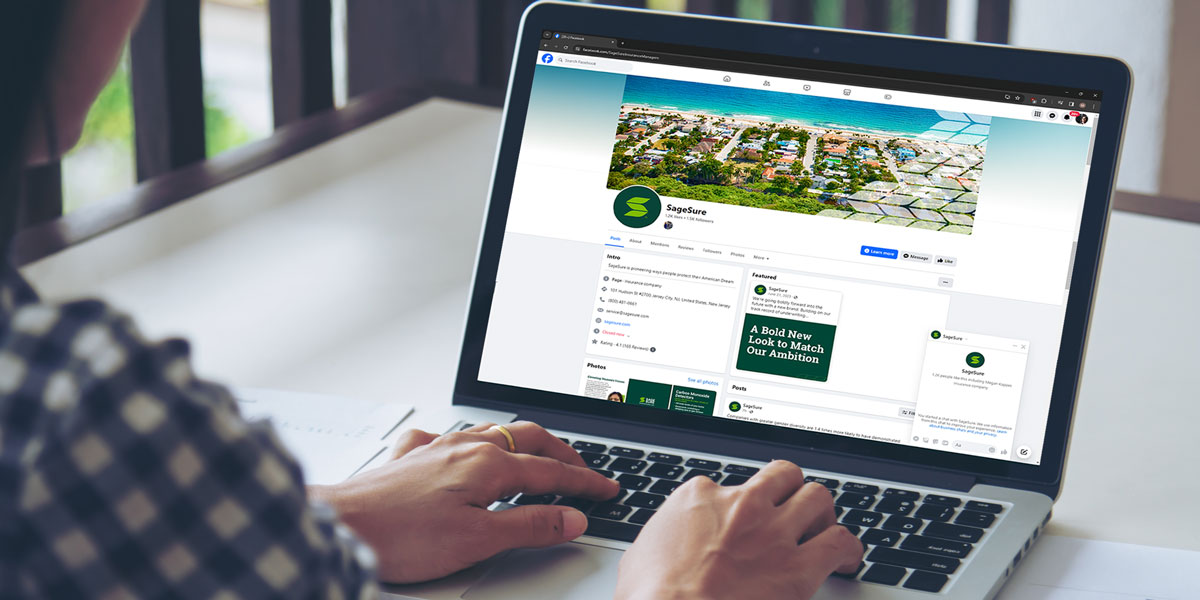
Insurance and inflation: Your questions answered
February 22, 2022 — Homeowner insights | Inflation insights | Insurance insights
Understanding how your homeowners insurance policy operates can be challenging enough without the added complexity of inflation. Even if you felt you had a good grasp of your policy when you purchased it, if you don’t stay connected to the details, it can feel like having to go to school all over again when you get your annual renewal packet in the mail – and that’s in a typical year. Lately, things are anything but typical. This year, inflation is having a major impact on the insurance industry, and it’s directly affecting most homeowners insurance premiums.
Here are answers to some of the common questions about inflation and insurance. If you need additional information, you can visit sagesure.com/inflation or reach out to your insurance agent or representative.
One of the factors used to calculate your insurance premium is the cost required to rebuild your home in the case of a fire, storm or other natural disaster. Your policy’s Coverage A accounts for the cost to rebuild and increases 2% to 3% each year upon renewal to cover standard inflation. Building material costs have increased 19% in the past 12 months.1 Inflation levels in the U.S. have not been this high in at least 13 years.2 Standard increases don’t account for the current reality. Without adjustments, if something happened to your home, you would not be fully protected.
Typically, homeowners insurance premiums increase 2% to 3% each year to cover the cost of inflation. Economic disruption and challenges in the home-building industry have caused inflation factors to increase beyond what annual premium increases consider. As a result, home insurance premiums are going up more than average. These increases are necessary to ensure you have enough coverage to restore your home in the event of a loss.
Yes, premium increases are due to the severity and frequency of storms but are also the result of inflation in the building labor and materials industry. Here’s how it all comes together. Homeowners insurance premiums are impacted by both increases to inflation factors and insurance rates. Insurance rates that are going up are directly related to storm activity. Increased Cat activity causes reinsurance (insurance for insurance companies) rates to increase. Insurers specializing in providing property insurance in coastal states will feel these impacts more than others. Economic factors connected to inflation and disruption in building labor and materials are also causing a need for premium increases. Factors in each state are unique for both rate and inflation increases. While not all states will experience the same increases, as a general practice for home insurers who want to make good on their promise to protect a homeowner’s most valued asset, insurance rates and inflation factor increases will be reflected in premium increases.
Several factors go into calculating a home insurance premium. One of them is whether or not you’ve filed a claim. Others include liabilities or attractive nuisances (swimming pools, trampolines, etc.), neighborhood crime, credit score, age of your roof and your home’s replacement cost, to name a few. So even if you haven’t filed a claim, other changes to your property and the neighborhood can have an impact on your insurance premium.
Yes, you can impact your homeowners insurance premium even though market conditions are driving rates up. Several factors go into calculating insurance premiums, and the good news is that you can do something about some of those factors. Eliminating dangers from your property, practicing good home maintenance and completing improvements that make your home safer or mitigate damage can all impact and possibly lower your insurance premium. Talk with your agent if you think you might qualify for any of these possible reductions.
Yes, inflation has an impact on your insurance premium, due to the impact on replacement cost. In a typical year, insurance companies account for about a 2% to 3% increase to address standard inflation. This year, economic disruption and challenges in the home-building industry are impacting supply and demand and resulting in much higher inflation factors, and subsequently affecting insurance premiums. Many homeowners will see larger increases as a result.
These days, it seems the pandemic is having an impact on everything. While the pandemic is impacting the economy, it’s the economic impacts on the building industry and resulting supply and demand imbalances contributing to inflation driving home insurance premiums up.
Lumber costs are at an all-time high. In addition to lumber, the home-building industry is also seeing cost increases for PVC pipes, steel products and asphalt. Lack of qualified workers and difficulty sourcing products because of delivery hang-ups also contribute to rising costs in the construction industry. These cost increases impact how much it would cost to rebuild your home – this is called Coverage A or replacement cost value in your policy. To account for this, you may see your homeowners insurance premium increase. Without these increases, your home would be underinsured if you experienced a loss.
For more information about how inflation impacts your homeowners insurance premiums, visit sagesure.com/inflation.
1 https://www.usinflationcalculator.com/inflation/current-inflation-rates/
2 https://nahbnow.com/2021/08/building-material-prices-climbing-at-record-year-to-date-pace/
